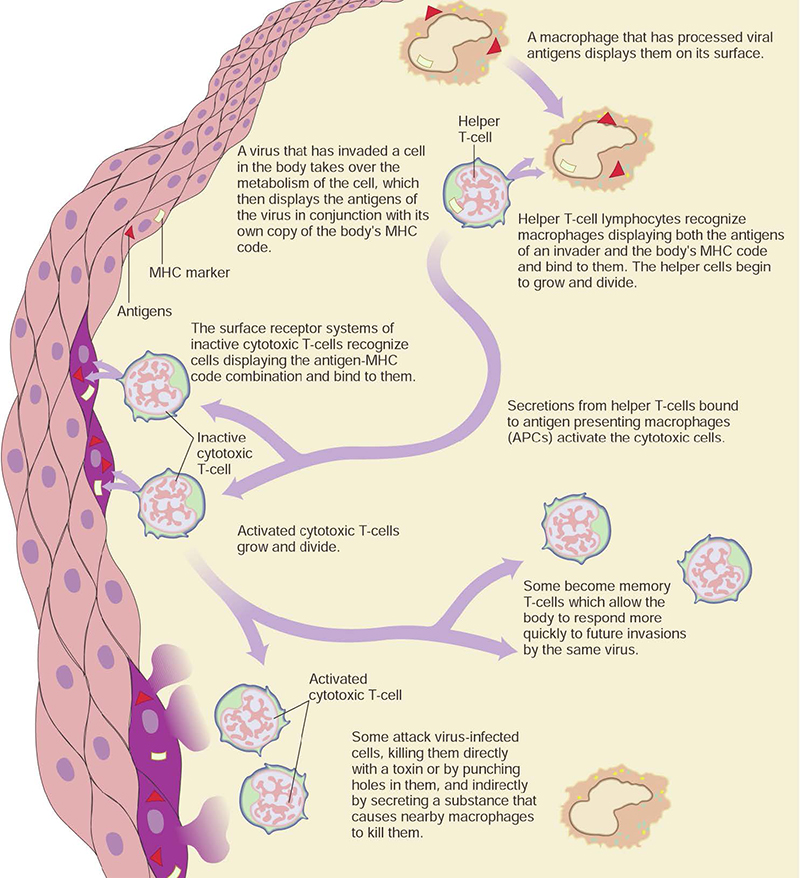What does the immune system do?The immune system protects the human body against germs, which are microorganisms that cause sickness and disease. There are four major types of germs—harmful bacteria (pathogens), viruses, fungi, and protozoa. This defense system begins with the skin, which stops germs from getting into your blood or tissues. If germs get into your body, for example through your nose or mouth, white blood cells called phagocytes and lymphocytes attack them. Phagocytes scout out and destroy invaders, and long-living lymphocytes remember the invaders and release chemicals called antibodies to make the body resistant, or immune, to them. White blood cells live in the bloodstream, lymphatic system, and spleen. The lymphatic system (or lymph system, for short) is a far-reaching network that extends throughout your entire body. A clear liquid called lymph runs throughout the system, washing the body’s cells with nutrients and water and detecting and removing pathogens. Lymph is filtered through the lymph nodes, and then passes into the body’s bloodstream. 
How the human immune system works is really pretty complicated. Many types of cells are used by the body to defend against viruses and other invaders. |